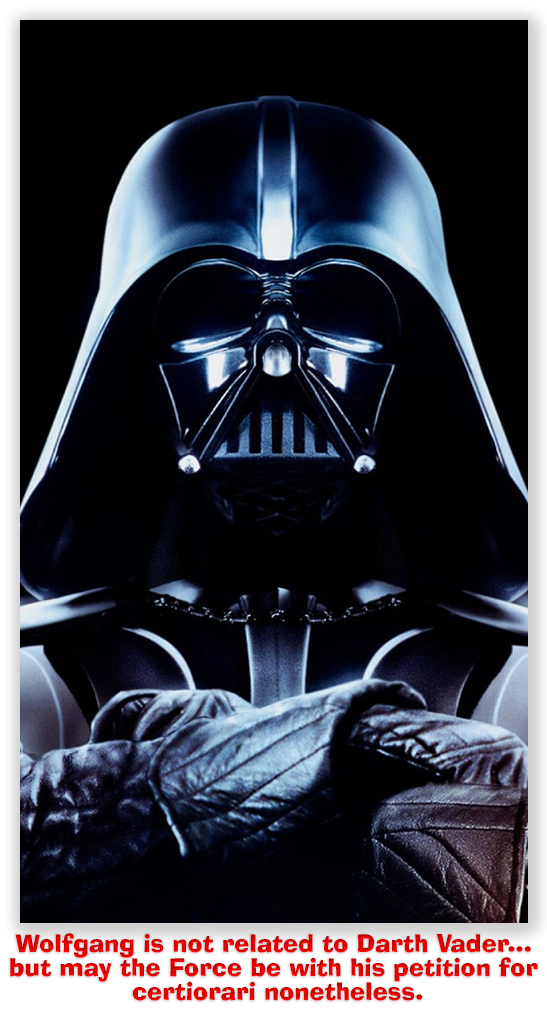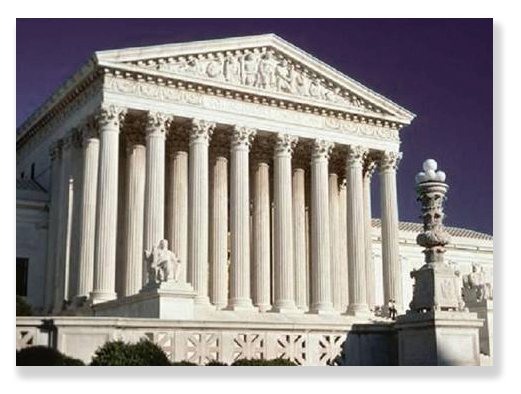We post news and comment on federal criminal justice issues, focused primarily on trial and post-conviction matters, legislative initiatives, and sentencing issues.

CERT PETITION TAKES AIM AT COMPASSIONATE RELEASE CIRCUIT SPLIT
 Last winter, I wrote about Wolfgang Von Vader, who had both a 2000 conviction in the Western District of Wisconsin for distributing meth (a “career offender” 270-month sentence) and a 2012 federal conviction in Kansas for possessing heroin in prison (a 120-month consecutive sentence).
Last winter, I wrote about Wolfgang Von Vader, who had both a 2000 conviction in the Western District of Wisconsin for distributing meth (a “career offender” 270-month sentence) and a 2012 federal conviction in Kansas for possessing heroin in prison (a 120-month consecutive sentence).
Wolfgang applied for 18 USC § 3582(c)(1)(A) compassionate release in both Kansas and Wisconsin. The Wisconsin case, dismissed for lack of jurisdiction, was reversed by the 7th Circuit and remanded last winter. In the Kansas case, however, his compassionate release motion was denied outright.
Wolfgang’s case should have been resentenced because of Johnson v. United States and Mathis v. United States, but when a multi-agency task force reviewed cases of prisoners qualifying for a 28 USC § 2255 motion to get him the lower sentence, Wolfgang got skipped. It was an accident. As his petition for cert put it, “extraordinary and compelling” describes his circumstances.
 The 10th Circuit, however, held that the district court could not consider the change in the law brought about by Johnson and Mathis in determining whether “extraordinary and compelling reasons” warranted a sentence reduction. Such reasons, the Circuit reasoned, are limited only to “new facts about an inmate’s health or family status, or an equivalent post-conviction development” and that any “legal contention” is categorically outside of § 3582(c)(1)(A)’s scope.
The 10th Circuit, however, held that the district court could not consider the change in the law brought about by Johnson and Mathis in determining whether “extraordinary and compelling reasons” warranted a sentence reduction. Such reasons, the Circuit reasoned, are limited only to “new facts about an inmate’s health or family status, or an equivalent post-conviction development” and that any “legal contention” is categorically outside of § 3582(c)(1)(A)’s scope.
Wolfgang has filed for Supreme Court review, with his petition filed by a partner in the Supreme Court/appellate practice group at McDermott Will and Emery, a 1,400-lawyer global firm. In his petition, Wolfgang noted that the 10th’s holding is at odds with other circuits on an issue on which the 7th Circuit has specifically asked the Supremes to hear.
 The effectiveness of the amended Guideline 1B1.13 in a little less than two weeks will help a lot of people, but it will not resolve whether a judge can consider a change in the law that makes a prisoner innocent of the offense or, at least, the sentence. With the Supreme Court slamming the door on using 28 USC § 2241 petitions to address changes in statutory interpretation (Jones v. Hendrix last June), the Von Vader cert question is an important one to a lot of people.
The effectiveness of the amended Guideline 1B1.13 in a little less than two weeks will help a lot of people, but it will not resolve whether a judge can consider a change in the law that makes a prisoner innocent of the offense or, at least, the sentence. With the Supreme Court slamming the door on using 28 USC § 2241 petitions to address changes in statutory interpretation (Jones v. Hendrix last June), the Von Vader cert question is an important one to a lot of people.
Von Vader v. United States, Case No 23-354 (petition for certiorari filed September 29, 2023)
– Thomas L. Root

